








Hope & Healing Addiction Treatment Center - Surprise, AZ
Verified Center
This provider's information has been quality-checked by Recovery.com's Research Team for accuracy and completeness, including center verification through appropriate third-party organizations.
Treatment Focus
This center treats substance use disorders and mental health conditions. You'll receive individualized care catered to your unique situation and diagnosis, learn practical skills for recovery, and make new connections in a restorative environment.
Primary Level of Care
Offering intensive care with 24/7 monitoring, residential treatment is typically 30 days and can cover multiple levels of care. Length can range from 14 to 90 days typically.
Treatment Focus
This center treats substance use disorders and mental health conditions. You'll receive individualized care catered to your unique situation and diagnosis, learn practical skills for recovery, and make new connections in a restorative environment.
Primary Level of Care
Offering intensive care with 24/7 monitoring, residential treatment is typically 30 days and can cover multiple levels of care. Length can range from 14 to 90 days typically.
Provider's Policy
Hope & Healing works with most PPO insurance plans, which can offer 100% of treatment after deductibles. Hope & Healing is also in network with many large insurance carriers. An Admission Specialist is available to provide a free, confidential benefit verification so you have a clear picture of what the costs of treatment would be at our facility.
Hope & Healing Addiction Treatment Center - Surprise, AZ
Hope & Healing Addiction Treatment Center - Surprise, AZ
About Hope & Healing Addiction Treatment Center - Surprise, AZ
Hope & Healing Addiction Treatment Center in Surprise, AZ, is a safe, healing-centered environment where clients can recover from addiction, trauma, and mental health challenges through clinically effective, trauma-informed care. They treat addiction at the root by addressing the underlying trauma, not just the behaviors on the surface. Care is in-network with most insurances, accredited for quality and safety, and also available in Spanish and Navajo.
Benefit from Trauma-Informed Care
Each client receives a personalized treatment plan built around their needs, background, and goals for recovery. Days are structured around healing routines that include weekly individual therapy, multiple group therapy sessions, psychiatric care and medication management, and life skills development. Hope & Healing also integrates healing practices rooted in Native American traditions, spiritual wellness, mindfulness, movement, equine therapy and expressive arts—creating space for clients to reconnect with their identity while building emotional resilience.
Rebuild & Relax in a Peaceful Home
Located in a suburban neighborhood northwest of Phoenix, Hope & Healing offers a 10-bed, co-ed residential setting designed for comfort and connection. Their clean, homelike environment provides a safe, stable space free from everyday triggers, where clients can focus fully on recovery. Amenities include a traditional sweat lodge for reflection and renewal, plus leisure activities such as foosball to encourage relaxation and community.
Keep Momentum in Healing
Hope & Healing’s continuing care program helps clients safely transition from residential treatment into daily life without losing the accountability and guidance that made early recovery possible. Each client receives a personalized plan to help them navigate triggers, rebuild relationships, and gain independence. Plans often include a Hope & Healing outpatient program, ongoing therapy, access to 12-Step and SMART support groups, telehealth appointments, job development training, and supportive housing.
Highlights from the Center
Highlights
These highlights are provided by and paid for by the center.
Equine Therapy
Co-Occurring Disorders Treatment
Eating Disorders Program
Trauma Treatment
Center Overview
Treatment Focus
This center treats substance use disorders and mental health conditions. You'll receive individualized care catered to your unique situation and diagnosis, learn practical skills for recovery, and make new connections in a restorative environment.

Hope & Healing Addiction Treatment Center - Surprise, AZ
Insurance Accepted
Cash Pay Rates
Estimated Cash Pay Rate
Center pricing can vary based on program and length of stay. Contact the center for more information. Recovery.com strives for price transparency so you can make an informed decision.




Recovery.com Verified Listing
Recovery.com verified that the name, location, contact information and license to operate for this treatment provider are valid and up-to-date.

Licensed by Arizona DHS
Recovery.com is an independent, third-party mental health resource. Verification does not imply endorsement and does not guarantee the quality of treatment services.
Meet Your Care Team
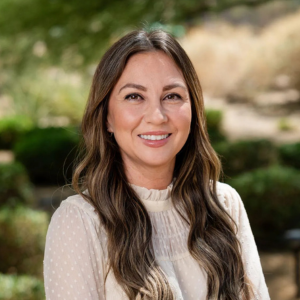
Jamie
Clinical Director
LCSW
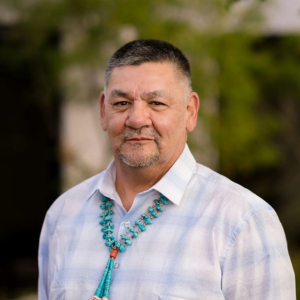
Tom
Director of Cultural Affairs
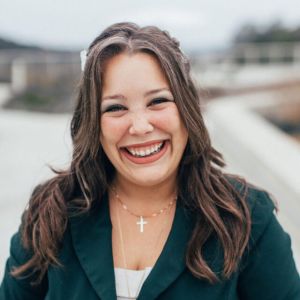
Kaleigh
Equine Therapy Program Manager
LCSW, MPA, CCTP
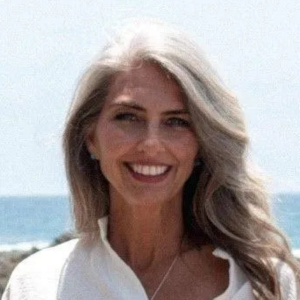
Heather
Registered Dietitian Nutritionist

Kim
Outpatient Program Manager
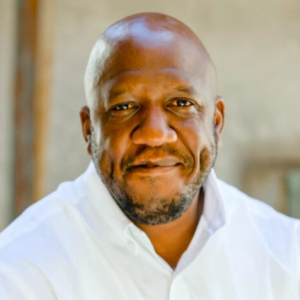
Nate
Residential Program Manager
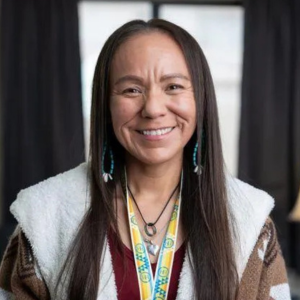
Jeri
Partnerships Manager
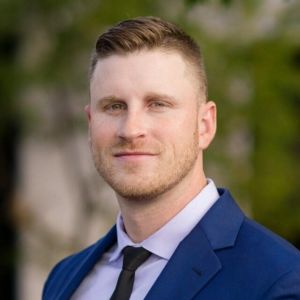
Michael Cunningham
Director of Community Relations
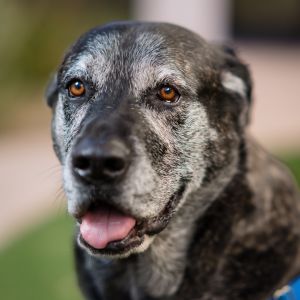
Chloe
Therapy Dog

George
Therapy Dog
Your Care Options
Specializations
Veterans
Patients who completed active military duty receive specialized treatment focused on trauma, grief, loss, and finding a new work-life balance.
Anxiety
Anxiety is a common mental health condition that can include excessive worry, panic attacks, physical tension, and increased blood pressure.
Depression
Symptoms of depression may include fatigue, a sense of numbness, and loss of interest in activities. This condition can range from mild to severe.
Equine Therapy
Guided interactions with trained horses, their handler, and a therapist can help patients improve their self-esteem, trust, empathy, and social skills.
Codependency
Codependency is a pattern of emotional dependence and controlling behavior. It's most common among people with addicted loved ones.
Drug Addiction
Drug addiction is the excessive and repetitive use of substances, despite harmful consequences to a person's life, health, and relationships.
Trauma
Some traumatic events are so disturbing that they cause long-term mental health problems. Those ongoing issues can also be referred to as "trauma."
Alcohol
Using alcohol as a coping mechanism, or drinking excessively throughout the week, signals an alcohol use disorder.
Who We Treat
Veterans
Patients who completed active military duty receive specialized treatment focused on trauma, grief, loss, and finding a new work-life balance.
Men and Women
Men and women attend treatment for addiction in a co-ed setting, going to therapy groups together to share experiences, struggles, and successes.
Executives
Executive treatment programs typically directly support the needs of people who manage businesses and may provide flexible schedules and office space to allow work during treatment.
Midlife Adults
For adults ages 40+, treatment shifts to focus on the unique challenges, blocks, and risk factors of their age group, and unites peers in a similar community.
Mild Disabilities
Adults with mild physical or intellectual disabilities receive treatment catered to their specific needs in a safe and clinically supportive environment.
Older Adults
Addiction and mental health treatment caters to adults 55+ and the age-specific challenges that can come with recovery, wellness, and overall happiness.
Treatment Services
Residential
In a residential rehab program, patients live onsite, with access to daily treatment and 24-hour care. An average stay is 30-90 days.
Outpatient
During outpatient rehab, patients attend a structured treatment program while continuing to live at home.
Day Treatment
In a PHP, patients live at home but follow an intensive schedule of treatment. Most programs require you to be on-site for about 40 hours per week.
Intensive Outpatient Program
In an IOP, patients live at home or a sober living, but attend treatment typically 9-15 hours a week. Most programs include talk therapy, support groups, and other methods.
Approaches
Holistic
A non-medicinal, wellness-focused approach that aims to align the mind, body, and spirit for deep and lasting healing.
Evidence-Based
A combination of scientifically rooted therapies and treatments make up evidence-based care, defined by their measured and proven results.
Individual Treatment
Individual care meets the needs of each patient, using personalized treatment to provide them the most relevant care and greatest chance of success.
Therapies
Mindfulness-Based Cognitive Therapy
MBCT combines mindfulness practices—like meditation—with cognitive therapy techniques to help patients work through negative thought patterns.
Seeking Safety
Not looking to the past, patients improve their present circumstances. They work toward safety without detailing traumatic events.
Spiritual Care
Tending to spiritual health helps treatment become more effective, allowing patients to better cope with their emotions and rebuild their spiritual wellbeing.
1-on-1 Counseling
Patient and therapist meet 1-on-1 to work through difficult emotions and behavioral challenges in a personal, private setting.
Family Therapy
Family therapy addresses group dynamics within a family system, with a focus on improving communication and interrupting unhealthy relationship patterns.
Equine Therapy
Guided interactions with trained horses, their handler, and a therapist can help patients improve their self-esteem, trust, empathy, and social skills.
Conditions We Treat
Post Traumatic Stress Disorder
PTSD is a long-term mental health issue caused by a disturbing event or events. Symptoms include anxiety, dissociation, flashbacks, and intrusive thoughts.
Anxiety
Anxiety is a common mental health condition that can include excessive worry, panic attacks, physical tension, and increased blood pressure.
Grief and Loss
Grief is a natural reaction to loss, but severe grief can interfere with your ability to function. You can get treatment for this condition.
Schizophrenia
Schizophrenia is a serious mental health condition that causes hallucinations, delusions, and disordered thinking.
Depression
Symptoms of depression may include fatigue, a sense of numbness, and loss of interest in activities. This condition can range from mild to severe.
Codependency
Codependency is a pattern of emotional dependence and controlling behavior. It's most common among people with addicted loved ones.
Suicidality
With suicidality, a person fantasizes about suicide, or makes a plan to carry it out. This is a serious mental health symptom.
Substances We Treat
Cocaine
Cocaine is a stimulant with euphoric effects. Agitation, muscle ticks, psychosis, and heart issues are common symptoms of cocaine abuse.
Prescription Drugs
It's possible to abuse any drug, even prescribed ones. If you crave a medication, or regularly take it more than directed, you may have an addiction.
Benzodiazepines
Benzodiazepines are prescribed to treat anxiety and sleep issues. They are highly habit forming, and their abuse can cause mood changes and poor judgement.
Ecstasy
Ecstasy is a stimulant that causes intense euphoria and heightened awareness. Abuse of this drug can trigger depression, insomnia, and memory problems.
Co-Occurring Disorders
A person with multiple mental health diagnoses, such as addiction and depression, has co-occurring disorders also called dual diagnosis.
Psychedelics
Hallucinogenic drugs—like LSD—cause euphoria and increased sensory experiences. When abused, they can lead to depression and psychosis.
Drug Addiction
Drug addiction is the excessive and repetitive use of substances, despite harmful consequences to a person's life, health, and relationships.
Chronic Relapse
Consistent relapse occurs repeatedly, after partial recovery from addiction. This condition requires long-term treatment.
Languages
Aftercare
Care Designed for Your Needs
Personal Amenities
Amenities
Special Considerations
Gender-specific groups
Patients in gender-specific groups gain the opportunity to discuss challenges unique to their gender in a comfortable, safe setting conducive to healing.
Activities
Yoga
Yoga is both a physical and spiritual practice. It includes a flow of movement, breathing techniques, and meditation.
Off-Site Activities
Learn More About the Center
EMDR Therapy for Addiction and Co-Occurring Disorders
Exploring how EMDR therapy helps process trauma and reduce addiction triggers.
Why Life Skills Development Matters in RecoveryXx
Build lasting independence by discovering how daily life skills training supports confidence and resilience in recovery.
Trauma-Informed Healing Through Connection With Horses
Experience the calming power of equine therapy to heal through trust, empathy, and emotional connection.
How MAT Works at Hope & Healing
Discover how medication-assisted treatment combines proven therapies and medical care to strengthen long-term recovery.





